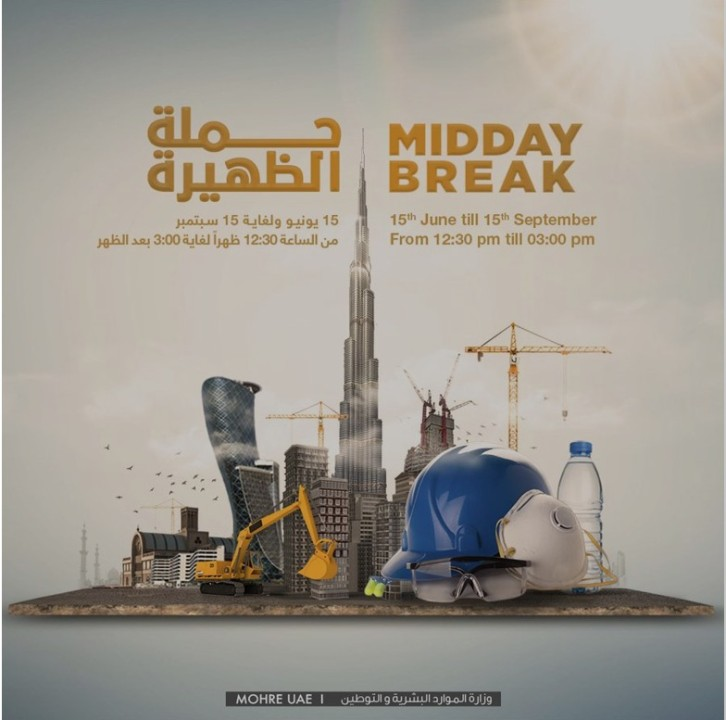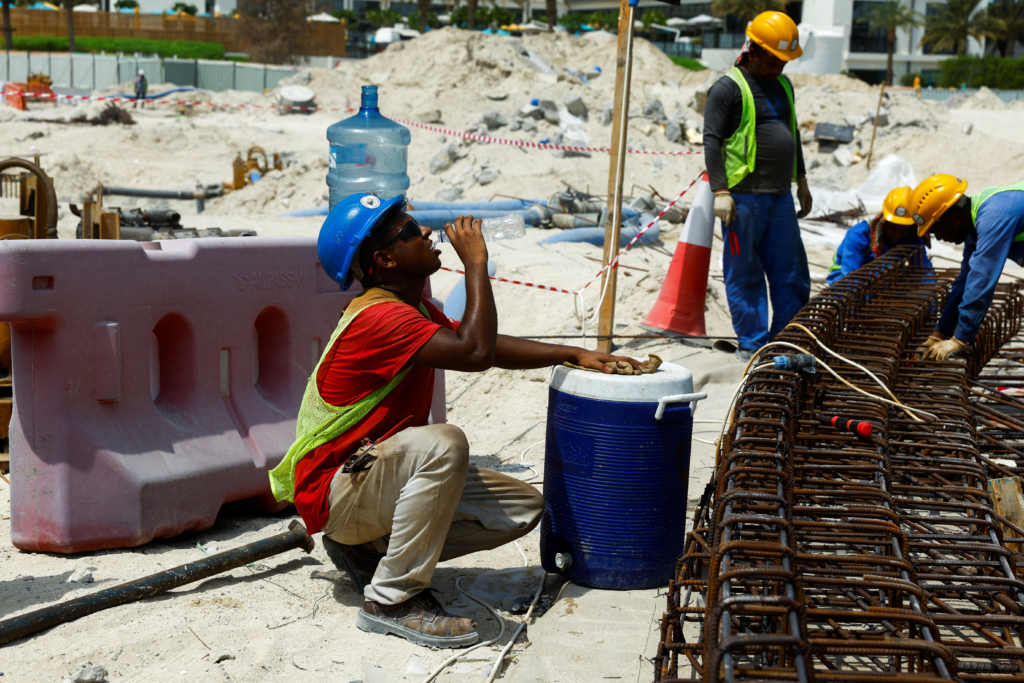UAE work hot conditions are becoming more challenging each year, especially during the scorching summer months. With temperatures often crossing 50°C in some areas, businesses are finding it increasingly difficult to maintain productivity and protect their employees. As climate change worsens, companies across various sectors in the United Arab Emirates are implementing innovative and urgent strategies to adapt to these extreme conditions.
The focus on worker safety, productivity, and legal compliance is reshaping how UAE companies operate during peak summer. Here’s how businesses are tackling this growing issue head-on.
Shift Timings to Avoid Peak Heat Hours
To counter the extreme heat, many companies in the UAE have adjusted their work schedules. Outdoor labour is now commonly conducted during early morning or late evening hours. This change not only helps workers avoid the dangerous afternoon sun but also reduces the risk of heatstroke and fatigue.
Under the UAE’s Midday Break Rule, outdoor work is banned from 12:30 pm to 3:00 pm between June 15 and September 15. This regulation helps reduce exposure to direct sunlight and has become a critical part of managing UAE work hot conditions.

Climate-Controlled Workspaces Becoming Standard
More businesses are investing in climate-controlled environments. This includes portable air-conditioned shelters at construction sites and upgraded HVAC systems in warehouses. These changes ensure employees have access to cool spaces where they can rest and recover.
Companies in logistics, manufacturing, and construction are particularly focused on temperature regulation. They know that improved working conditions lead to better morale and higher productivity.
Hydration Stations and Cooling Equipment
Access to water is no longer just a basic requirement it’s a safety necessity. Hydration stations offering cold water, electrolytes, and sometimes even Popsicle are now common at workplaces.
Employers are also providing workers with personal cooling gear such as:
- Cooling vests
- Neck wraps
- UV-resistant uniforms
These tools help combat the effects of UAE work hot conditions and are part of a growing safety-first approach.
Remote Work and Flexible Policies in White Collar Jobs
While outdoor workers face the harshest conditions, office workers are also impacted. Many businesses are offering remote work options during the summer to minimise exposure to heat during commutes.
Flexible hours and reduced office time are being adopted, especially for employees with health risks. This trend, which started during the pandemic, continues to grow due to extreme summer conditions.
Worker Education and Emergency Training
In response to the rising risks of heat-related illnesses, companies are focusing on awareness. Training sessions teach employees to recognize symptoms of heat exhaustion and dehydration.
Companies are also required to:
- Display awareness posters
- Run emergency drills
- Offer direct access to first-aid responders
In UAE work hot conditions, even a few minutes of delay in recognising heat stress can be life-threatening. These training programs are saving lives and reducing workplace accidents.
Industry-Specific Innovation for Heat Resistance
Different industries are adopting customized solutions. For example:
- Construction firms are testing new lightweight materials that absorb less heat.
- Agricultural businesses are using shade nets and misting systems.
- Oil and gas companies are implementing automation to reduce outdoor labor.
Such innovation is vital to ensuring that business operations continue safely under UAE work hot conditions.
Government and Private Sector Collaboration
The UAE government plays an active role in regulating and supporting businesses during hot weather. Authorities like the Ministry of Human Resources and Emiratisation (MOHRE) monitor compliance with heat safety laws.
Private companies are encouraged to report violations and share best practices. In many sectors, government audits and heat safety certificates are now a requirement.
This joint effort has led to a notable drop in heat-related incidents and has promoted a culture of accountability.

The Cost of Ignoring Heat Safety
While adapting to hot conditions may increase costs initially, the price of ignoring them is much higher. Businesses face risks like:
- Worker fatigue and absenteeism
- Medical emergencies
- Legal penalties
- Reputation damage
In 2024, several companies faced fines and shutdowns due to non-compliance with the midday break rule. Such incidents are pushing more firms to rethink their policies on employee safety during extreme heat.
Long-Term Outlook: Preparing for a Hotter Future
Climate scientists predict that the UAE will experience longer and more intense summers in the coming decades. This means that adaptation is no longer optional—it’s a business necessity.
Many companies are now investing in:
- AI-based heat monitoring systems
- Green building certifications
- Environmental sustainability programs
Adapting to UAE work hot conditions will be an ongoing challenge, but businesses that act now will be better prepared for the future.
Conclusion
The harsh UAE work hot conditions are driving a shift in how businesses operate across the country. From policy changes to technological upgrades, companies are rethinking their workplace strategies to protect their most valuable asset: their people.
Staying productive while ensuring worker safety under extreme temperatures is no easy task. But as many UAE businesses have shown, with smart planning, investment, and a proactive mindset, it’s entirely possible.
Whether you’re a business owner, HR manager, or employee, understanding how to work smartly in the heat is now essential to long-term success in the UAE.
Do follow Gulf Magazine on Instagram
Also Read – Disturbance Fuels Flooding on Gulf Coast: 7 Shocking Impacts Revealed


